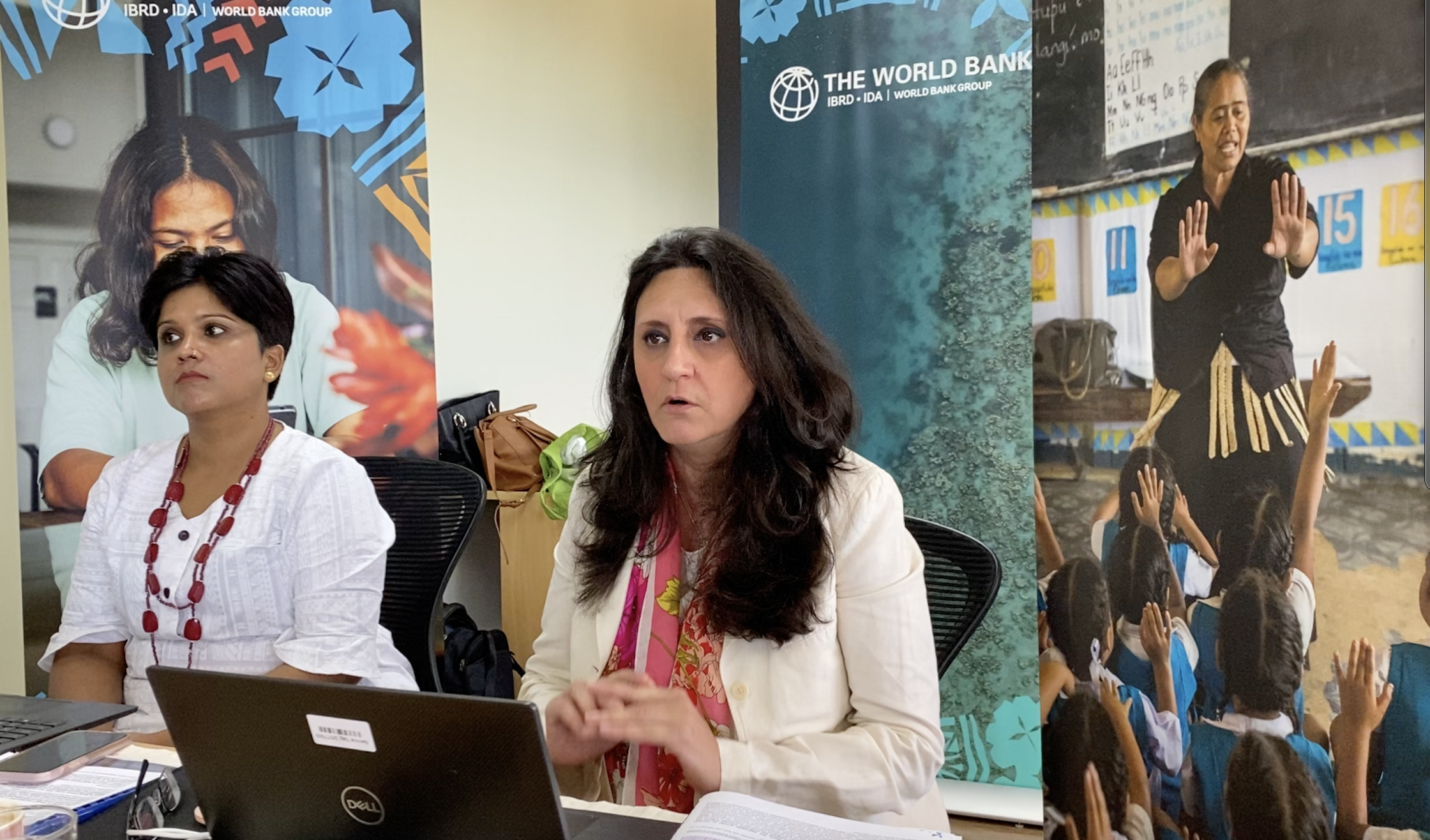World Bank economists at the launching of the March Pacific Economic Update report on top of the Central Bank Building on Tuesday.
By Staff Writer
The World Bank 2024 Pacific Economic Update report shows Samoa is one of four Pacific Island countries dependent on Tourism and Remittances for its economic growth.
The others are Tonga, Vanuatu and Palau.
The update report outlines the economic growth in 11 island countries that recorded an “historically high growth rate of 9.1% in 2022” after the initial shock of the COVID-19 pandemic shock.
The World Bank update report gives ‘twice a year assessment of the economic status that also includes Fiji, Kiribati, Marshall Islands, Nauru, Solomon Islands and Tuvalu.
Findings from the current update shows that economic growth in the region slowed down to 5.5% in 2023 after the 9.1% burst the previous year in 2022.
The economic slow down reflected “slowing economic activity in Fiji, which accounts for more than half of the regions output.”
The report also found :
- Average inflation declined from a peak of 7.5% in 2022 to 6.5% in 2023, reflecting significant labour and supply shortages in tourism and remittances-led countries (Palau, Samoa, Tonga, and Vanuatu); nations that have grappled with pressures on the cost of goods and services.
- Pacific island countries are expected to see slower growth in 2024 and 2025, as the boost from the pandemic recovery fades and fiscal policies gradually tighten. Short-term risks have become more balanced since the August 2023 Pacific Economic Update, with global commodity prices and inflation declining. However, shifts in global economic growth, trade, and international tourism pose significant challenges to economic prospects and poverty reduction, risks that could heighten due to geopolitical tensions.
- Despite the ongoing economic recovery, Pacific island countries still face formidable challenges. Medium-term growth prospects have worsened, with output significantly below the pre-pandemic trend. More than half of Pacific countries in the report are projected to see slower per capita growth than advanced economies, leading to widening income gaps and deteriorating prospects for poverty reduction.
Education holds the key to “long term development and improve medium-term growth prospects” in the region.
A special analysis in the updated report showed that “well-educated people are the most important asset for the Pacific.”
“Improvements in education can be made through stronger teacher training and more cost-effective investments in infrastructure and resources,” emphasised the report.
The Pacific Economic Updated report was officially launched at the World Bank Office on top of the Central Bank Building in Apia on Tuesday 6 March 2024.
Other member countries included in the report joined the launching vial online link.
